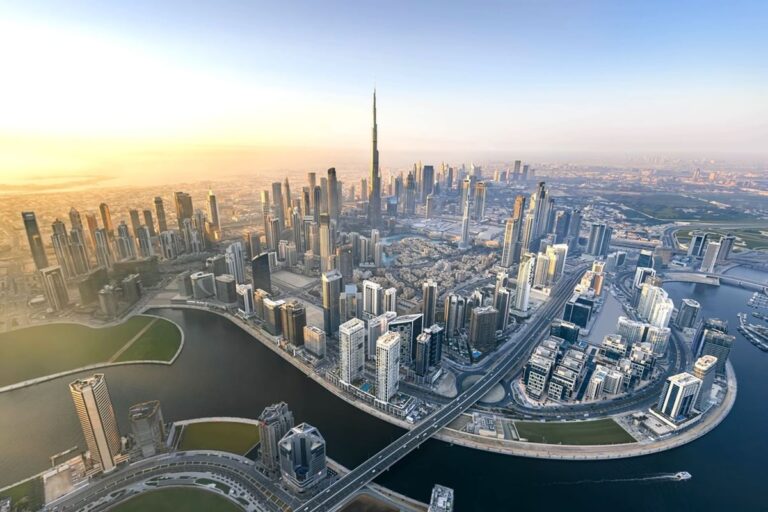The UAE’s commercial real estate market saw record momentum in Q2 2025, with office rents in Abu Dhabi jumping 31 per cent and Dubai retail contracts up 9 per cent, as vacancies hit historic lows, according to JLL.
Dana Williamson, Head of Offices, Business Space and Retail, MEA at JLL, said: “The UAE’s commercial market is undergoing dynamic shifts, fuelled by changing consumer and end-user expectations, which are driving growth and unlocking new avenues for investment.
“While supply-demand imbalances in the Offices sector continue to exert downward pressure on rental values, demand for prime, strategically located office spaces remains strong, underscoring the ongoing ‘flight to quality.’
UAE commercial real estate
“In the Retail sector, the rising emphasis on immersive and differentiated consumer experiences is creating fertile ground for the emergence of innovative concepts and evolving trends.”
Both Abu Dhabi and Dubai are projected to maintain landlord-favourable conditions in the short to medium term. In Abu Dhabi, prime office rents reached AED2,905 ($791)sqm per annum in Q2 2025 — a 31.5 per cent year-on-year increase. Grade A and B rents grew by 7.8 per cent and 10.9 per cent respectively.
In Dubai, rental rates increased across all segments: prime rents by 17.3 per cent, Grade A and B by 19.5 per cent and 16 per cent, and Grade C by 22.9 per cent. The gap between prime and Grade A rents has widened to 73.3 per cent in Abu Dhabi and 50.8 per cent in Dubai.
Vacancy rates remain extremely tight. Abu Dhabi recorded just 1.5 per cent citywide, with prime office availability at 0.1 per cent. In Dubai, prime vacancies are only 0.3 per cent, with the overall city vacancy rate at 7.7 per cent.
Lease activity fell year-on-year in both cities — down 19.1 per cent in Dubai and 1.9 per cent in Abu Dhabi — as tenants rushed to secure renewals. Renewals grew by 0.8 per cent in Abu Dhabi and 8.3 per cent in Dubai.
With high rents and limited availability in prime retail locations, landlords are expected to remain in control in the short to medium term.
Abu Dhabi saw a 12.1 per cent decline in new rental contract registrations in Q2 2025, while Dubai’s retail market accelerated with a 9 per cent year-on-year rise, driven by an 11.9 per cent increase in renewals and a 2.3 per cent increase in new contracts.
Vacancy rates declined to around 9 per cent in Abu Dhabi and 7.5 per cent in Dubai. Prime super regional retail rents rose by 3.4 per cent to AED5,524 ($1,505) sqm in Abu Dhabi, while Dubai posted a sharper 15.1 per cent increase to AED 826 ($225) sqft.
Total existing retail inventory in the two emirates stands at 8.13 million sqm., with 98,000 sqm. of new stock due before year-end.
JLL notes that retailers are using data analytics and tech innovation to create more personalised shopping experiences. Physical stores are increasingly designed as experiential destinations, while F&B operators are expanding space allocations.
Developers are converting former food courts into family entertainment zones with more casual and upper-casual dining.
Another emerging trend is the expansion of e-commerce players into physical showrooms, which double as micro-fulfilment centres for rapid local deliveries and in-store pickups.

